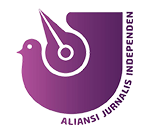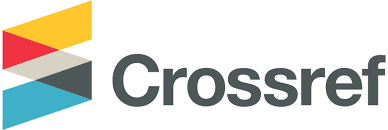Discourse Network Analysis of CNN’s “Indonesia Gelap”: Advocacy Coalition and Public Sphere
Abstract
Demonstrations in Indonesia frequently reflect students’ social and political actions, particularly in criticizing government policies. In exploring the phenomenon of “Demo Indonesia Gelap,” this study uncovered patterns of public discourse through the Advocacy Coalition Framework (ACF) and Habermas’ concept of the public sphere. It analyzed how CNN Indonesia framed the demonstration and assessed whether its coverage adhered to principles of independent journalism. Using discourse network analysis, this research identified the roles played by relevant actors, including students, academics, and media outlets, in shaping public opinion. Findings indicate that students remain central in mobilizing critical discourse against government policies, while the media significantly influences the narratives surrounding such demonstrations. Although CNN Indonesia effectively disseminated information, questions emerged regarding its neutrality. This study highlights the increasing influence of media and communication technologies on social movements in the digital era. Moreover, the primary issue underlying the demonstrations is government policy amid a period of political transition. The research suggests the importance of addressing how media framing shapes public perception and maintaining the public sphere as a democratic space for open discourse, free from intervention by particular political interests.
Keywords
Full Text:
PDFReferences
Abzianidze, N. (2020). Them as structural equivalence: Analysing nationalist discourse networks in the Georgian print media. Politics and Governance, 8(2), 243–256. https://doi.org/10.17645/pag.v8i2.2605
Aisya, P. N., Bakry, G. N., & Sjafirah, N. A. (2022). Analisis jejaring sosial peran pers dalam penyebaran informasi terkait kebijakan PPKM. Jurnal Komunikasi Global, 11(1), 45–59. 10.24815/jkg.v11i1.24555
Aliansi Jurnalis Independen (AJI). (2020). Laporan kekerasan terhadap jurnalis 2020. Aliansi Jurnalis Independen. https://advokasi.aji.or.id/index/datakekerasan/1.html
Anam, K., Kolopaking, L. M., & Kinseng, R. A. (2020). The effectiveness of social media usage within social movement to reject the reclamation of the Jakarta Bay, Indonesia. Sodality: Jurnal Sosiologi Pedesaan, 8(1), 14–29. https://doi.org/10.22500/8202028955
Barung, A. A. Y. (2023). Gerakan mahasiswa di Indonesia dan tantangannya terhadap hegemoni negara. Jurnal Pemikiran Sosiologi, 10(2), 1–32. https://doi.org/10.22146/jps.v10i2.82612
Bhattacharya, C. (2020). Gatekeeping the plenary floor: discourse network analysis as a novel approach to party control. Politics and Governance, 8(2), 229–242. https://doi.org/10.17645/pag.v8i2.2611
Borders, R. W. (2021). 2021 World press freedom index: Journalism, the vaccine against disinformation, blocked in more than 130 countries. Reporters Without Borders (RSF). https://rsf.org/en/2021-world-press-freedom-index-journalism-vaccine-against-disinformation-blocked-more-130-countries
Borgatti, S. P., Everett, M. G., Johnson, J. C., & Agneessens, F. (2013). Analyzing social networks (1st ed.). SAGE Publications.
Bossner, F., & Nagel, M. (2020). Discourse networks and dual screening: Analyzing roles, content and motivations in political Twitter conversations. Politics and Governance, 8(2), 311–325. https://doi.org/10.17645/pag.v8i2.2573
Boulianne, S. (2015). Social media use and political participation: A meta-analysis of current research. Information, Communication & Society, 18(5), 524–538. https://doi.org/10.1080/1369118X.2015.1008542
Brown, D. K., & Mourão, R. R. (2021). Protest coverage matters: how media framing and visual communication affects support for black civil rights protests. Mass Communication and Society, 24(4), 576–596. https://doi.org/10.1080/15205436.2021.1884724
Buckton, C. H., Fergie, G., Leifeld, P., & Hilton, S. (2019). A discourse network analysis of the public media debate on the UK soft drinks industry levy. European Journal of Public Health, ckz186.673. https://doi.org/10.1093/eurpub/ckz186.673
Caiani, M. (2023). Framing and social movements. Discourse Studies, 25(2), 195–209. https://doi.org/10.1177/14614456231154734
Castells, M. (2015). Networks of outrage and hope: Social movements in the internet age (2nd ed.). Polity Press.
Chadwick, A., Vaccari, C., & O’Loughlin, B. (2018). Do tabloids poison the well of social media? Explaining democratically dysfunctional news sharing. New Media & Society, 20(11), 4255–4274. https://doi.org/10.1177/1461444818769689
Dahlgren, P. (2005). The Internet, public spheres, and political communication: Dispersion and deliberation. Political Communication, 22(2), 147–162. https://doi.org/10.1080/10584600590933160
Dynel, M., & Poppi, F. I. M. (2020). Caveat emptor: boycott through digital humour on the wave of the 2019 Hong Kong protests. Information, Communication & Society, 24(15), 2323–2341. https://doi.org/10.1080/1369118X.2020.1757134
Fergie, G., Leifeld, P., Hawkins, B., & Hilton, S. (2018). Mapping discourse coalitions in the minimum unit pricing for alcohol debate: A discourse network analysis of UK newspaper coverage. Addiction, 114(4), 741–753. https://doi.org/10.1111/add.14514
Fischer, F., & Gottweis, H. (2012). The argumentative turn revisited. Duke University Press. https://doi.org/10.2307/j.ctv11smfm4
Freelon, D., McIlwain, C. D., & Clark, M. (2016). Beyond the hashtags: #Ferguson, #BlackLivesMatter, and the online struggle for offline justice. Center for Media & Social Impact, American University, Forthcoming. https://doi.org/10.2139/ssrn.2747066
Fuchs, C. (2023). Digital democracy and the limits of the digital public sphere. Routledge. https://fuchsc.net/files/DDDPS_dps.pdf
Gabehart, K. M., Nam, A., & Weible, C. M. (2022). Lessons from the advocacy coalition framework for climate change policy and politics. Climate Action, 1. https://doi.org/10.1007/s44168-022-00014-5
Gabehart, K. M., & Weible, C. M. (2023). Advocacy coalition framework. In C. M. Weible & H. C. Jenkins-Smith (Eds.), van Gerven, M., Rothmayr Allison, C., Schubert, K. (eds) Encyclopedia of Public Policy (pp. 1–10). Springer. https://doi.org/10.1007/978-3-030-90434-0_5-2
Ghinoi, S., & Steiner, B. (2020). The political debate on climate change in italy: A discourse network analysis. Politics and Governance, 8(2), 215–228. https://doi.org/10.17645/pag.v8i2.2577
Gramsci, A. (1971). Selections from the prison notebooks of Antonio Gramsci. International Publishers.
Gutiérrez-Meave, R. (2024). Advocacy coalitions, soft power, and policy change in Mexican electricity policy: A discourse network analysis. Policy & Politics, 52(3), 501–520. https://doi.org/10.1332/03055736Y2023D000000005
Habermas, J. (1989). The structural transformation of the public sphere: An inquiry into a category of bourgeois society. MIT Press.
Habermas, J. (2006). Political communication in media society: Does democracy still enjoy an epistemic dimension? The impact of normative theory on empirical research. Communication Theory, 16(4), 411–426. https://doi.org/10.1111/j.1468-2885.2006.00280.x
Jackson, S. J., Bailey, M., & Welles, B. F. (2020). #HashtagActivism: Networks of race and gender justice. The MIT Press. https://doi.org/10.7551/mitpress/10858.001.0001
Jamil, A., & Doktoralina, C. M. (2016). The Save KPK movement: A framing analysis of coverage in Indonesian news media surrounding the KPK and police dispute. Mediterranean Journal of Social Sciences, 7(3). https://doi.org/10.5901/mjss.2016.v7n3s1p229
Jenkins-Smith, H. C., Nohrstedt, D., Weible, C. M., & Sabatier, P. A. (2014). The advocacy coalition framework: Foundations, evolution, and ongoing research. Theories of the Policy Process.
Khatami, M. I., & Pahlevi, M. E. T. (2022). Covid-19 dan kebebasan berekspresi di internet: Melihat represi digital dalam pemberitaan Tempo.co. Source: Jurnal Ilmu Komunikasi, 8(1), 1–13. https://doi.org/10.35308/source.v8i1.4592
Larsen, H. (2020). The public sphere and Habermas: Reflections on the current state of theory in public library research. Journal of Documentation, 77(1), 251–258. https://doi.org/10.1108/JD-05-2020-0075
Leifeld, P. (2020). Policy debates and discourse network analysis: A research agenda. Politics and Governance, 8(2), 180–183. https://doi.org/10.17645/pag.v8i2.3249
Mattoni, A., & Odilla, F. (2021). Digital media, activism, and social movements’ outcomes in the policy arena. The case of two anti-corruption mobilizations in Brazil. Partecipazione e Conflitto, 14(3). https://doi.org/10.1285/i20356609v14i3p1127
Mauersberger, C. (2016). Advocacy coalitions and democratizing media reforms in Latin America. Springer.
McQuail, D. (2020). McQuail’s mass communication theory (7th ed.). SAGE Publications.
Mendes, K., Ringrose, J., & Keller, J. (2018). Digital feminist activism: Girls and women fight back against rape culture. Oxford University Press. https://doi.org/0.1093/oso/9780190697846.001.0001
Misran, Sutan, A. J., & Nurmandi, A. (2021). Penggunaan media sosial dalam penyebaran narasi hak asasi manusia di Indonesia. Journal of Government Science (GovSci), 2(1), 40–50. https://doi.org/10.54144/govsci.v2i1.21
Mulyani, H. S., Bakry, G. N., & Kusmayadi, I. M. (2022). Storytelling with network data visualization hashtag #Prayforturkey on Twitter. Journal of New Zealand Studies. https://doi.org/10.5281/zenodo.7306374
Nagel, M., & Bravo-Laguna, C. (2022). Analyzing multi-level governance dynamics from a discourse network perspective: the debate over air pollution regulation in Germany. Environmental Sciences Europe, 34, 62. https://doi.org/10.1186/s12302-022-00640-0
Papacharissi, Z. (2010). A private sphere: Democracy in a digital age. Polity Press.
Polletta, F., & Chen, P. C. B. (2017). Narrative and social movements. In The Oxford Handbook of Cultural Sociolog (pp. 487–506). Oxford Handbooks. https://doi.org/10.1093/oxfordhb/9780195377767.013.18
Putra, B. A. (2024). Digital activism in Southeast Asia: the #MilkTeaAlliance and prospects for social resistance. Frontiers in Sociology, 9. https://doi.org/10.3389/fsoc.2024.1478630
Reuters Institute. (2024). Digital News Report 2024. Reuters Institute. https://reutersinstitute.politics.ox.ac.uk/digital-news-report/2024
Saumer, M., Maikovska, K., Neureiter, A., Čepelova, A., Scharrel, H. van, & Matthes, J. (2024). Angry tweets. How uncivil and intolerant elite communication affects political distrust and political participation intentions. Journal of Information Technology & Politics, 1–17. https://doi.org/10.1080/19331681.2024.2433760
Schmid, N., Sewerin, S., & Schmidt, T. S. (2019). Explaining advocacy coalition change with policy feedback. Policy Studies Journal, 48(4), 1109–1134. https://doi.org/10.1111/psj.12365
Sconfienza, U., & Durand, F. (2023). Discourse network analysis of Twitter and newspapers: Lessons learned from the nuclear debate in the 2022 French presidential campaign. French Politics, 21(2), 195–221. https://doi.org/10.1057/s41253-023-00215-2
Soetomo, L. P. D. (2021). Indeks kebebasan pers Indonesia 2021. Lembaga Pers Dr. Soetomo. https://lpds.or.id/indeks-kebebasan-pers-2021
Stier, S., Bleier, A., Lietz, H., & Strohmaier, M. (2018). Election campaigning on social media: Politicians, audiences, and the mediation of political communication on Facebook and Twitter. Political Communication, 35(1), 50–74. https://doi.org/10.1080/10584609.2017.1334728
Sumirat, P. A., & Eriyanto, E. (2023). Koalisi wacana dalam debat pemekaran Papua: Analisis jaringan wacana debat pemekaran tiga provinsi baru di Papua. Jurnal Riset Komunikasi, 6(2), 1–20. https://doi.org/10.38194/jurkom.v6i2.739
Tenove, C., Tworek, H., Lore, G., Buffie, J., & Deley, T. (2022). Damage control: How campaign teams interpret and respond to online incivility. Political Communication, 40(3), 283–303. https://doi.org/10.1080/10584609.2022.2137743
Theocharis, Y., Barberá, P., Fazekas, Z., & Popa, S. A. (2020). The dynamics of political incivility on Twitter during election campaigns. SAGE Open, 10(2). https://doi.org/10.1177/2158244020919447
Törnberg, A., & Törnberg, P. (2016). Combining CDA and topic modeling: Analyzing discursive connections between Islamophobia and anti-feminism on an online forum. Discourse & Society, 27(4), 401–422. https://doi.org/10.1177/0957926516634546
Uldam, J., & Askanius, T. (2013). Online civic cultures: Debating democracy, organizing protest. International Journal of Communication, 7, 1185–1204. https://ijoc.org/index.php/ijoc/article/viewFile/1755/920
van Stekelenburg, J., & Gaidytė, T. (2023). Social movements and the dynamics of collective action. In The Oxford handbook of political psychology (L. Huddy, pp. 945–986). Oxford University Press. https://doi.org/10.1093/oxfordhb/9780197541302.013.25
von Malmborg, F. (2023). Combining the advocacy coalition framework and argumentative discourse analysis: The case of the “energy efficiency first” principle in EU energy and climate policy. Politics & Policy, 51(2), 222–241. https://doi.org/10.1111/polp.12525
Wallaschek, S., Starke, C., & Brüning, C. (2020). Solidarity in the public sphere: A discourse network analysis of German newspapers (2008-2017). Politics and Governance, 8(2). https://doi.org/10.17645/pag.v8i2.2609
Wilujeng, R. N. A., Nurhadi, N., & Astutik, D. (2024). Penguatan jaringan aliansi inklusi dalam mengadvokasi kasus kekerasan seksual di Pesantren Ploso Jombang. Jurnal Socius: Journal of Sociology Research and Education, 11(2). https://doi.org/10.24036/scs.v11i2.745
Yousaf, M., Hu, Z., & Raza, S. H. (2022). News media exposure and community consensus on terrorism in a developing country: First and second level agenda-setting effects. Media Watch, 14(1), 33–57. https://doi.org/10.1177/09760911221130818
DOI: https://doi.org/10.24198/jkj.v9i1.62553
Refbacks
- There are currently no refbacks.
Copyright (c) 2025 The Author(s)

This work is licensed under a Creative Commons Attribution-NonCommercial-ShareAlike 4.0 International License.
Kajian Jurnalisme Indexed by:
Editorial Office of Kajian Jurnalisme:
Journalism Study Program, Faculty of Communication Sciences, Universitas Padjadjaran
Building 3 2nd Floor, Jl. Raya Bandung Sumedang KM.21, Jatinangor, Sumedang Regency, West Java 45363
Email: kajian.jurnalisme.fikom@unpad.ac.id
Telepon: (022) 7796954
Faks: (022) 7794122
Kajian Jurnalisme Supervised by:













